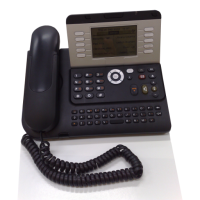Traditional operators from day’s past would wheel-and-deal incoming customer calls via a switchboard.
It was a chaotic transfer of wires from one line to the next, oftentimes inviting the chance of dropped calls, fumbled transactions and other hiccups.
Sure, communication has seemingly jumped from one revolutionary milestone to the next since, but the need for faster, stronger communication has come in the form of VoIP, or phone messaging systems.
From technical benefits on down to business efficiency, having a VoIP service has taken communication to a whole new level.

Here are two main reasons why.
1. The Advanced Features
Cell phones have predominately taken new shapes each and every year.
And with new shapes come shiny new features to make communication–be it texting, calling or staying in touch via video chat–a breeze for the most part.
The same can almost be said with your standard phone messaging devices.
A typical VoIP service will be able to connect clients to businesses with a host of features waiting for them at the gate.
They come in the form of effective features such as auto attendant services, unique call transfers and voicemail integration to other devices in and around the office.
First, clients are welcomed to a business by the auto attendant.
This advanced automated voice proficiently collects and redirects inbound calls, providers customers with a number of directories that can be reached either vocally or by the push of a button, can make transfers to a human operator should the caller need further details and much more.
However you see it, the auto attendant can make clients feel their needs are being met without interruption or busy signals. And that’s all before the voicemail integration.
With most phone messaging services, the “messaging” part is the one area you think they should get right.
Not only do they get it right, they transform the time frame for business response times.
The way that voicemail is handled with VoIP systems is simple: call transferring options.
Most business phone systems hosted with PBX services can field voicemail and forward them to various extensions.
Let’s say a client calls the office and is seeking Employee “X” but he or she is out for the moment.
Call forwarding will take over from there, and can be directed to the employee’s email server, cell phone or both. The main thing is that the call routing isn’t hindered by dropped calls or delayed air space.
2. Positive Influence On Business Productivity
One of the most obvious benefits of VoIP systems is the comfort of knowing that business productivity can grow into something much bigger.
Think about it. If call transfer times are shortened, the influx of customer calls increase, busy signals are all but eliminated, voicemail advancements are in place and in the end, companies should start to see transactions and dealings chug along at a better, more organized pace.
Since calls are always being forwarded to the desired directory of the caller, you eliminate the human error of snagged calls.
Business phone systems enjoy the amount of open lines afforded by VoIP, the equipment itself can be run through existing company lines, employees have a more diverse and effective setup, and before they know it, the professional tone of their company can expand in the eyes of the consumer.
Because in the end, all businesses strive to reach a balance of professionalism and proficiency that helps maximize earnings and quickly transforms customer questions into answers.
That’s the advantage of phone messaging systems and the switchboards that came before it.
